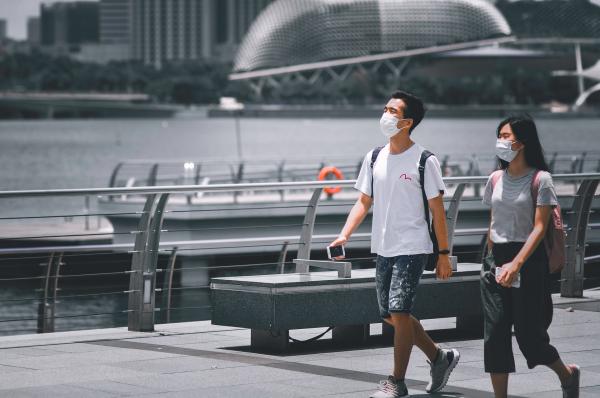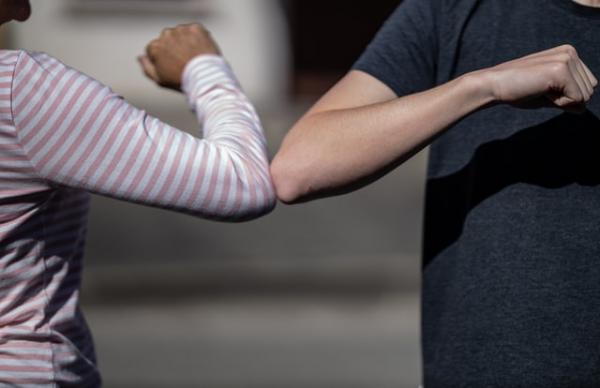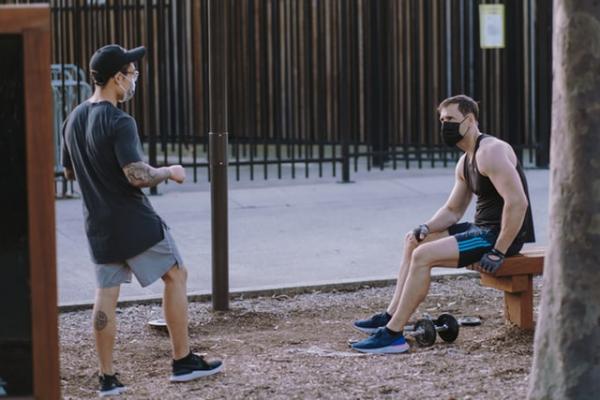Although news reports of hoarding, and panic-buying might make it hard to believe, research shows that natural disasters, like the COVID-19 pandemic, can actually bring out the best in people. Although times of significant threat or crisis can cause post-traumatic stress, research shows that so-called “adversarial growth” is just as common as a response. This is our capacity to not only overcome a crisis, but to actually grow stronger, wiser and more resilient.

Image via Pixabay
When people experience adversity—such as life-changing illness or loss—research shows their relationship with the world changes. Often, adversity may help us experience a new appreciation of life, improve our relationships with others, and help us gain personal strength. In other words, what doesn’t kill us makes us stronger.
In situations of social stress, our primal instincts kick in. These innate survival responses protect us against unwanted threats, and can both help and hinder how we cope. Though we may not be able to choose our stress response, there are ways that we can train it.
The most common response to threats in humans is the “fight, flight or freeze” response, where stress triggers a hormonal response that prepares the body to either fight or run from a threat.
I

Image via Unsplash
But more recent research shows we also have a “tend and befriend” response. When faced with a threat, this response releases hormones—like oxytocin—that encourage us to build and maintain our social network to reduce stress and anxiety, and build empathy.
Post-Traumatic Growth
Studies looking at natural disasters show the “tend and befriend” response actually reduces incidents of post-traumatic stress disorder and promotes “post-traumatic growth”. These are positive psychological changes that happen in response to a traumatic event, including increased resilience, self-confidence, greater empathy, and improved subjective well-being.
![]()
Image via rawpixel
In fact, a study of people from Hong Kong who lived through the SARS pandemic found that although people experienced significant trauma, most reported positive changes as a result. The most noticeable changes were increased social support, better mental health awareness and healthier lifestyles.
Research also shows there are benefits to facing a crisis collectively, compared to experiencing it alone. Studies have found that social support during times of trauma can lead to better emotional health and less severe stress reactions in the long term.
For example, after 2010's 7.1-magnitude earthquake in Christchurch, New Zealand, one study’s participants reported feeling more connected to others because of this shared experience. Having a role to play, helping others and contributing to their communities were some of the key elements associated with greater personal growth and were better able to manage stress and carry on with their normal routine following the earthquake.

Image via Unsplash
Coming Together
So is it possible we might experience similar growth during the novel coronavirus pandemic? Based on past psychological research, we will. However, researchers also acknowledge that experiencing this level of crisis will bring about painful emotions, uncertainty, physical suffering, and psychological distress. How we cope with this—either through the “fight or flight” or “tend and befriend” response— is vital to our psychological health as individuals and as a community.
The “fight or flight” response tends to happen when we face an outside threat—whereas the “tend and befriend” response happens in order to support those around you. However, during natural disasters and pandemics, there’s no “outside threat”, so the “tend and befriend” response may be more likely to happen.
![]()
Image via rawpixel
When we choose the “tend and befriend” response, this means we connect with others, either physically or metaphorically (such as trying to see things from their perspective to understand their feelings and struggles). In doing this, we release oxytocin, a neural-hormone, part of our adaptive stress response. Also known as the “love hormone,” oxytocin is a chemical messenger involved in important human behaviours, including sexual arousal, trust, and anxiety. Not only is oxytocin produced in large amounts after birth to allow mothers to bond with their baby, it’s also produced when we seek out social support during stress. This helps us bond through hugging, touching, or closeness.

Image via Unsplash
Given that many governments are now advising social distancing, we’re now relying on technology to trigger our “tend and befriend” response. Though technology will impact our ability to feel connected and bond with others, studies show being in contact virtually with friends and family can still enhance bonding and reduce the negative effects of stress. In fact, talking on the phone is shown to be better than texting. Video chats are even more beneficial than phone calls, as you can see the person you’re talking to.
If we can still regularly socialise—even virtually—this can help people bond, and build personal growth and social wellbeing in those affected by a collective trauma. This “communal coping” also makes us more open to making new friends. The “tend and befriend” response encourages empathy and compassion, gives us better social awareness, and makes us better able to understand the needs of others and how to behave in an empathetic and helpful way.

Image via Unsplash
Though stress is an understandable response during a time like this, choosing how you respond to it is important. The “tend and befriend” response will help us consider others in our community, and may be important for social distancing, and increasing charitable responses or acts of kindness. In the midst of a global crisis, this adaptive stress response may not only reduce incidents of anger, prejudice and violence, but may also foster collective humanity and post-pandemic growth.
Banner image via rapixel. This article is republished from The Conversation under a Creative Commons licence. Read the original article.
Lowri Dowthwaite is a Lecturer in Psychological Interventions at the University of Central Lancashire.








Comments